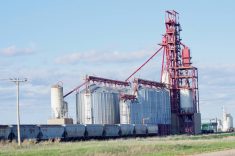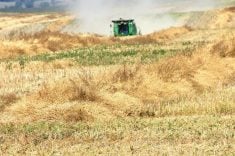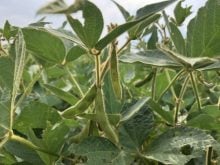MarketsFarm — Canola prices, along with other edible oils, received a strong boost on Wednesday due to sharp upticks in Malaysian palm oil values.
Canola futures have also received support from a bullish forecast this week from Statistics Canada on planted acres for this spring.
Despite the Indonesian government stating Monday its export ban on palm oil excluded crude palm oil (CPO), the government flip-flopped two days later. Citing a need to control rising domestic food prices, Indonesia said it’s now including CPO in its ban along with refined palm oil.
Read Also

JBS profit falls amid still-challenging US market environment
JBS, the world’s largest meat company, reported a net profit fall in the third quarter in spite of a rise in global net sales amid a still-challenging beef market environment in the U.S., according to an earnings statement on Thursday.
Analyst Errol Anderson of ProMarket Communications in Calgary said that change in policy saw Malaysian palm oil values spike almost 10 per cent shortly after the announcement.
Anderson said he spoke with a number of palm oil traders about Indonesia’s ban on palm oil exports.
“There’s kind of a consensus that the ban may not last long. But how long is not long?” he said, noting the market doesn’t know approximately when it will be lifted.
Whenever palm oil and other edible oil prices begin to decrease, Anderson said there will be a great deal of volatility.
“The moment canola has the opportunity to exhale, it’s going to come down hard,” he stated, suggesting a drop of $100 per tonne is very possible. However the analyst said such a reversal may not happen for a number of weeks.
“The problem is with these markets is they tend to go too high,” Anderson said.
And that has fit the bill for canola, as the most actively traded contracts have spiked to new highs. The old-crop July contract topped out Wednesday at $1,213 per tonne, before settling at $1,208.80. Also, most of the new-crop contracts are above $1,000/tonne.
Statistics Canada’s estimate of 20.9 million planted acres of canola for 2022-23 was still having a bullish effect on the market. Anderson said the federal agency came in below the average trade guess by about one million acres.
“We’ll probably see some form of adjustment over the next few weeks to the acreage numbers,” he said.
Last year Canadian farmers seeded 22.48 million acres to canola.
— Glen Hallick reports for MarketsFarm from Winnipeg.















